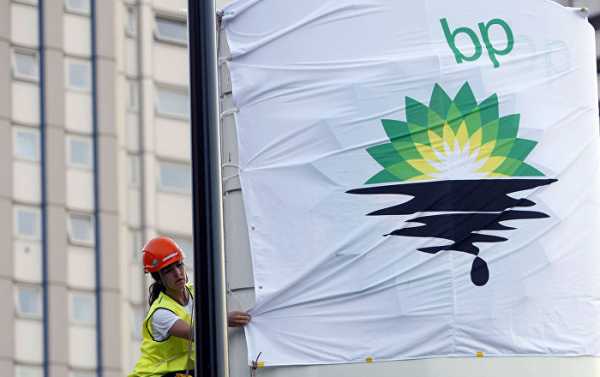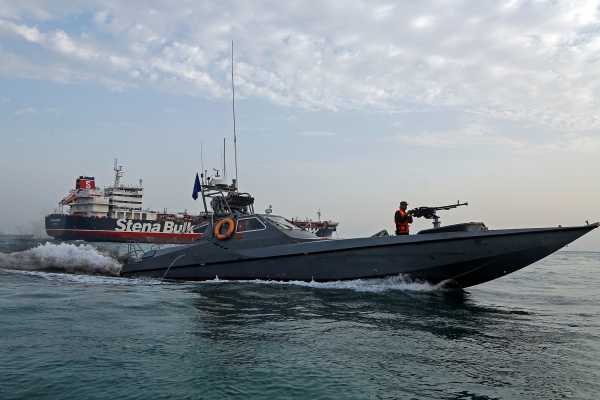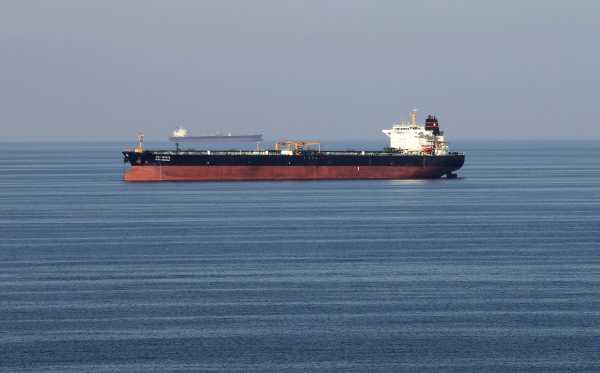
In recent weeks, the US and the UK have announced separate plans to put together military coalitions to patrol the Persian Gulf and the Strait of Hormuz and ‘protect commercial vessels’ operating in the area against an alleged Iranian threat.
British multinational oil and gas conglomerate BP has not sent tankers through the Strait of Hormuz since July 10, and has no plans to resume such transit anytime soon, chief financial officer Brian Gilvary revealed Tuesday, Reuters reports.
“We will continue to make shipments through there but you won’t see any BP-flagged tankers going through in the short term,” Gilvary said, clarifying that the company plans to use chartered tankers to ship crude out of the oil-rich region instead.
On July 10, the company reported that three boats belonging to the Islamic Revolutionary Guard Corps allegedly attempted to block a BP tanker traversing the Strait of Hormuz while being shadowed by the HMS Montrose frigate. A British Ministry of Defence spokesperson said the incident forced the Montrose to confront the Iranian vessels. No casualties were reported in the alleged incident.
Tensions between Iran and the UK spiked to their highest levels in years this month after Royal Marine commandos boarded and seized the Grace 1, a Panamanian-flagged oil tanker loaded with Iranian oil off the coast of Gibraltar on July 4. London alleged that the ship was headed for an oil processing terminal in Syria, in violation of European Union sanctions against the war-torn country. Iran denied the claims.

A boat of the Iranian Revolutionary Guard sails next to Stena Impero, a British-flagged vessel owned by Stena Bulk, at Bandar Abbas port, July 21, 2019.
On July 20, the Stena Impero, a British-flagged tanker was boarded and seized by Iranian commandos, with Tehran alleging that the vessel had engaged in dangerous maneuvers and rammed an Iranian fishing vessel sending out distress calls. The UK denied these claims and demanded the ship’s immediate release.
Both countries have insisted that the tanker incidents were not ‘tit-for-tat’ events, and condemned one another for the seizures, calling them acts of “piracy.”
Last week, in response to the incident involving the Stena Impero, UK Foreign Secretary Jeremy Hunt announced plans to put together a European-led coalition separate from a similar US partnership to patrol the waters of the Persian Gulf and the Strait of Hormuz in a bid to “protect” commercial vessels against possible Iranian interference. Germany, France, Denmark and Italy have reportedly expressed interest in London’s idea, with Iran condemning the plans and vowing to “protect” its “1,500 of Persian Gulf coastline” and the surrounding waters.

Oil tankers pass through the Strait of Hormuz, December 21, 2018.
Up to one third of the world’s sea-bound oil supplies pass through the Strait of Hormuz each day, with the vital strategic waterway carrying oil from oil rich nations of Iraq, Saudi Arabia, Kuwait, and the small Gulf States, as well as Iran.
BP is one of the largest energy conglomerates in the world, with $282 billion in assets and $9.58 bill in net profits in 2018. According to World Atlas, the company’s $222.8 billion in total revenues made it the seventh-largest oil company in the world. The company played a major role in exploiting Iran’s oil resources in the 20th century. In the Early 1950s, Iranian Prime Minister Mohammed Mossadegh nationalized Iran’s oil industry, prompting British Prime Minister Winston Churchill to ask US President Dwight Eisenhower to help overthrow Mossadeq in a coup in 1953. After the coup, BP continued its operations in the country until 1979, when foreign energy concerns were kicked out of the country, without compensation, following the Iranian Revolution.
Sourse: sputniknews.com






